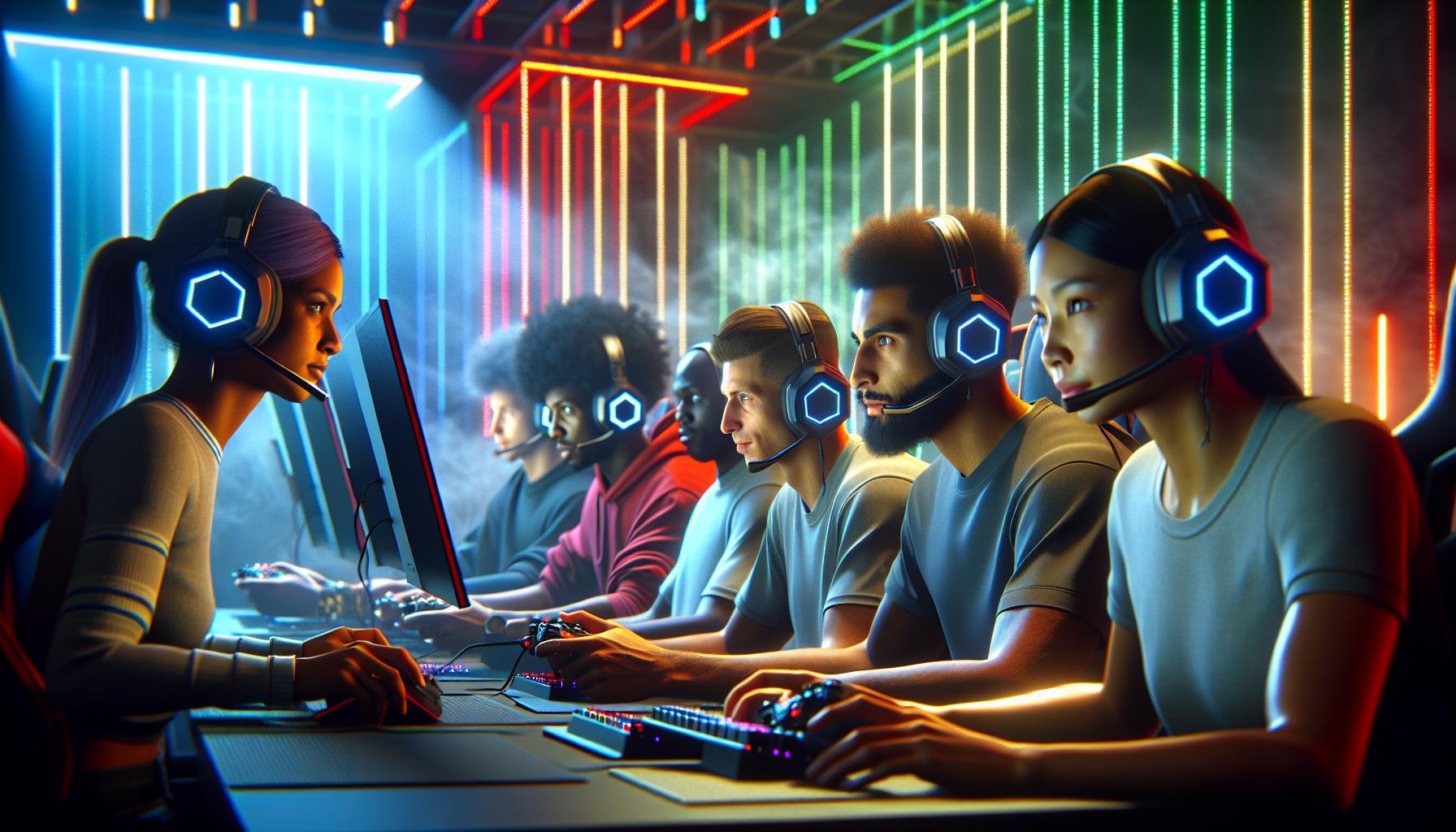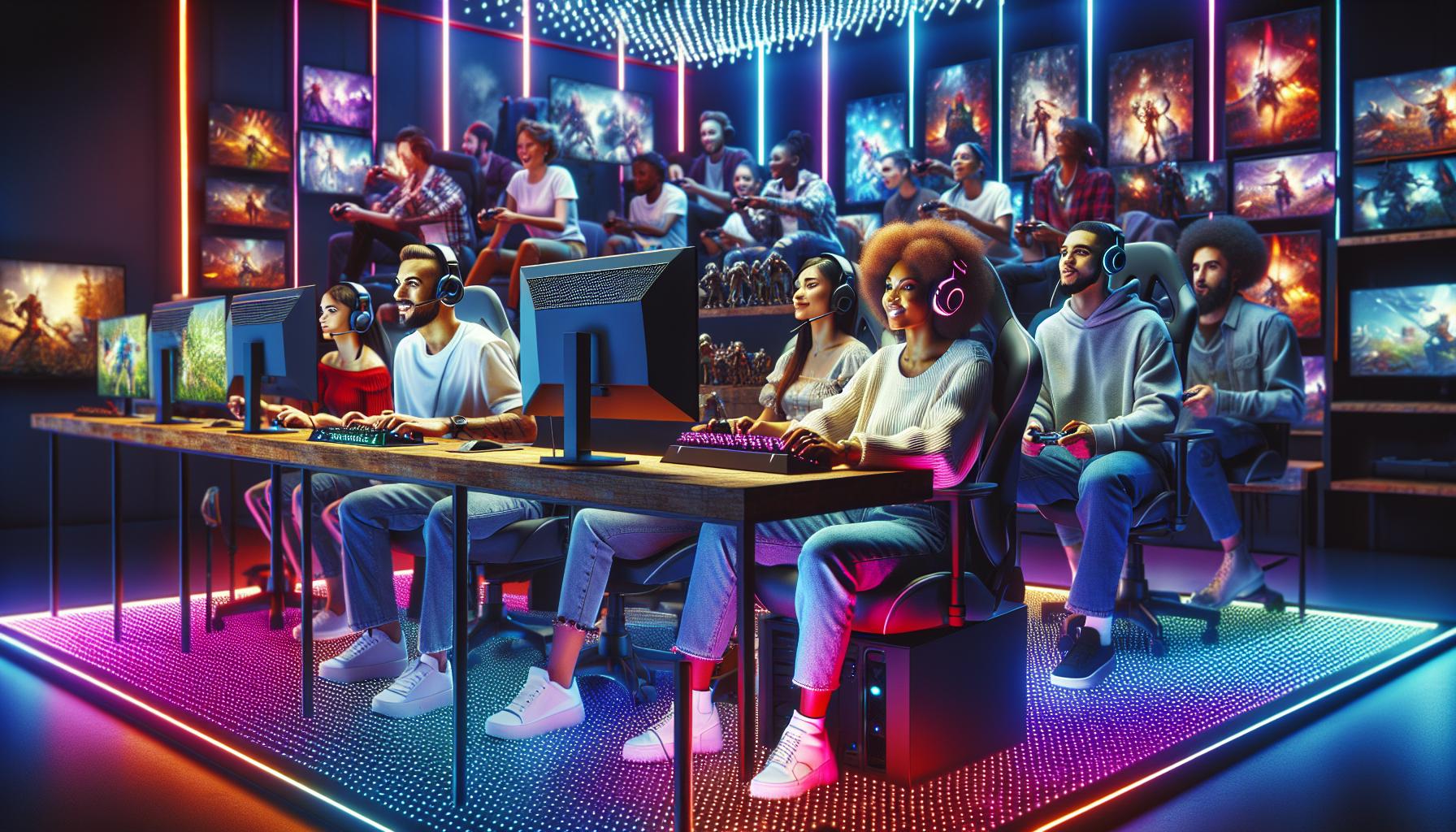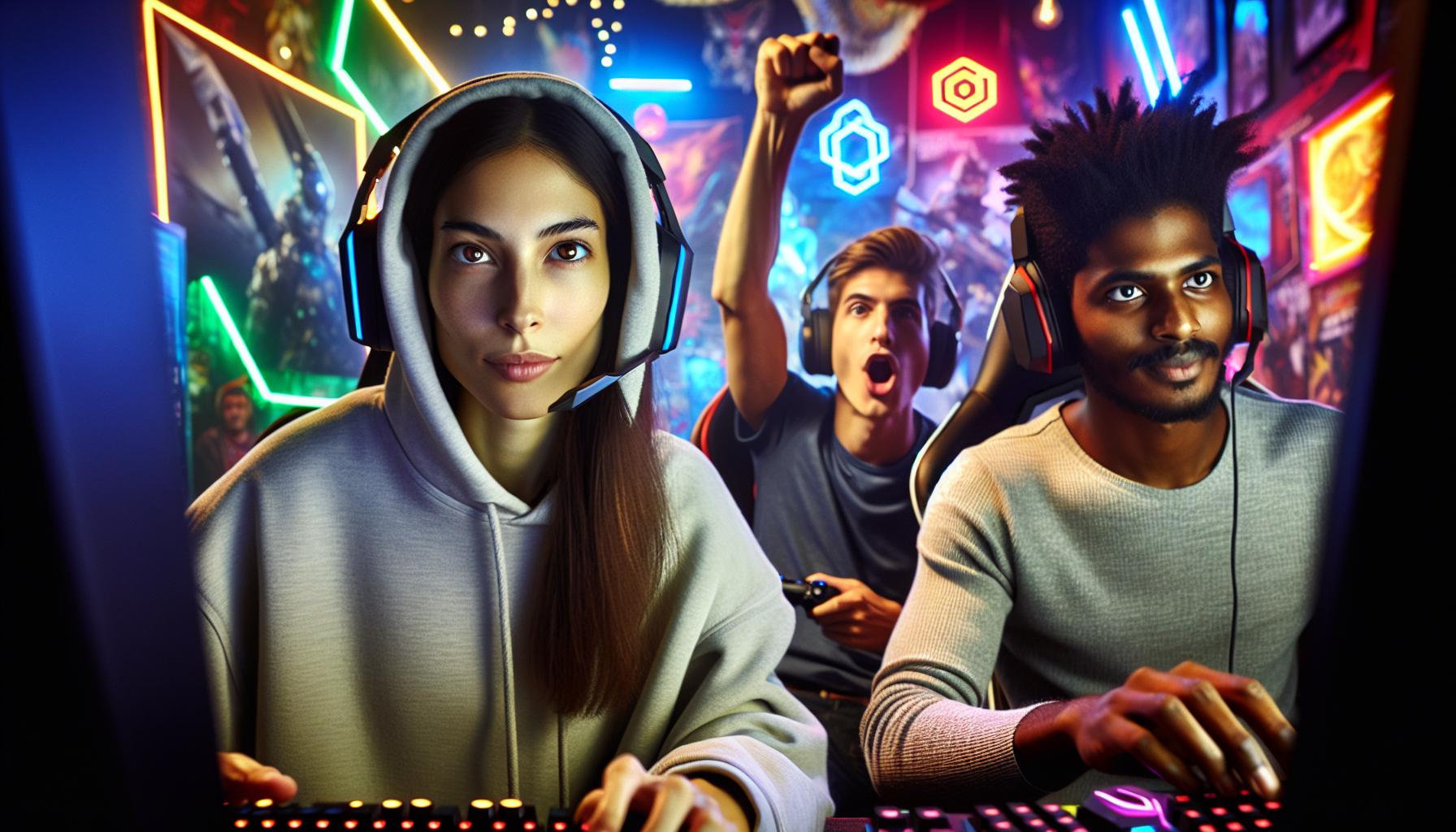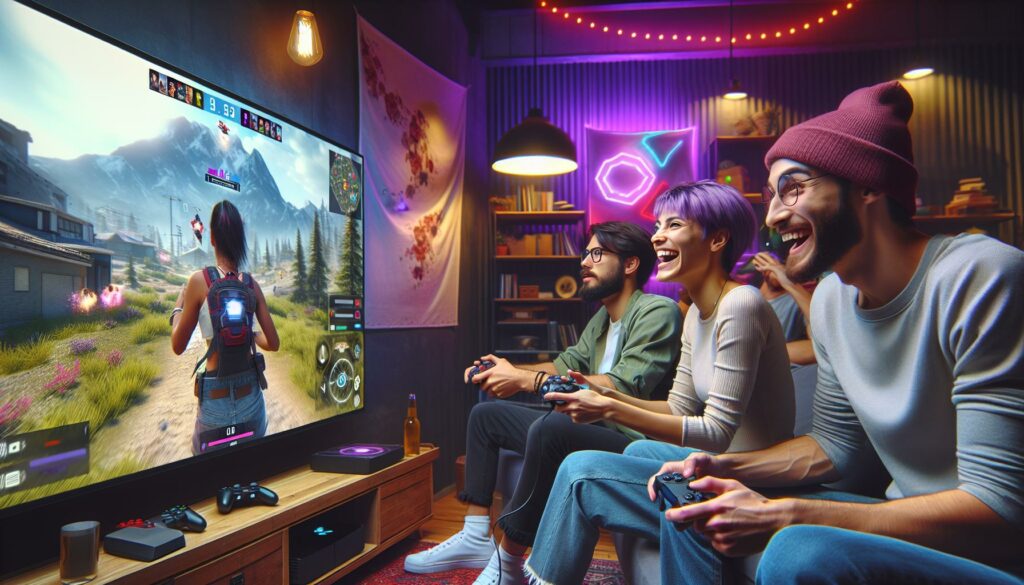Video gaming culture has evolved from a niche hobby into a global cultural phenomenon that shapes entertainment media and social interactions. What started as simple pixelated games in arcades has transformed into an immersive digital universe where millions connect share and compete across virtual realms.
Today’s gaming culture transcends age demographics and geographical boundaries creating diverse communities united by their passion for interactive entertainment. From casual mobile gamers to professional esports athletes the gaming landscape continues to expand its influence on modern society. This digital revolution has sparked new forms of storytelling artistic expression and competitive entertainment while challenging traditional notions of social interaction and community building.
Video Gaming Culture
Gaming communities transformed from local arcade gatherings into global digital networks connecting millions of players across platforms. These communities shape modern gaming culture through shared experiences collaborative gameplay social interactions.
From Arcade Culture to Online Networks
The 1980s arcade culture established the foundation for gaming’s social dynamics with physical spaces where players gathered to compete share strategies. Local arcade communities fostered friendly rivalries leaderboard competitions in-person tournaments across popular games like Pac-Man Street Fighter Donkey Kong. The 1990s introduced home gaming consoles multiplayer capabilities creating living room gaming circles Nintendo Mario Kart parties Sega Sonic competitions. Online connectivity in the 2000s revolutionized community interaction through platforms like Xbox Live PlayStation Network enabling voice chat friend lists cross-continental gameplay. Modern gaming communities thrive on Discord Twitch Reddit engaging in real-time discussions sharing gameplay clips organizing events across time zones.
The Rise of Competitive Gaming
Esports emerged as a cultural phenomenon through organized tournaments professional leagues global championships. Major events like The International for Dota 2 League of Legends World Championship draw millions of viewers generate substantial prize pools exceeding $40 million. Professional teams organizations emerged creating structured competitive environments training facilities coaching staff dedicated practice schedules. Popular esports titles include:
| Game | Active Players | Prize Pool (2023) |
|---|---|---|
| League of Legends | 180M | $8M |
| Dota 2 | 7.6M | $40M |
| CS:GO | 24M | $2.5M |
| Valorant | 14M | $2M |
Streaming platforms transformed competitive gaming into spectator entertainment with professional players building personal brands through consistent content creation community engagement sponsored partnerships.
Gaming Language and Communication

Gaming communities have developed distinct communication patterns that blend traditional language with specialized gaming terminology. This unique linguistic ecosystem encompasses both text-based interactions and voice communications across various gaming platforms.
Unique Gaming Terminology
Gamers communicate through specialized terms that describe in-game actions mechanics strategies:
- “Buffs” increase character attributes like strength speed health
- “Farming” involves collecting resources experience points gold
- “Aggro” describes enemy attention drawing tactics
- “Meta” refers to optimal strategies gameplay approaches
- “Nerf” indicates developer-implemented power reductions
- “Toxicity” describes negative behavior harassment harassment
- “GG” means good game expressing sportsmanship match completion
- “AFK” indicates away from keyboard temporary unavailability
- “DPS” means damage per second measuring attack effectiveness
Discord and Voice Chat Culture
Discord serves as the primary communication hub for gaming communities connecting 150+ million active users. Players utilize voice channels for:
- Real-time strategy coordination during team-based games
- Community meetups scheduled gaming sessions event planning
- Role-based channels separating casual competitive discussions
- Custom emotes emoticons expressing gaming-specific reactions
- Dedicated music bots enhancing gaming atmosphere
- Server moderation tools maintaining community standards
- Text channels organizing game-specific information resources
- Integration with streaming platforms sharing gameplay highlights
- Automated notifications for game updates tournaments events
- Push-to-talk settings minimizing background noise
- Clear callouts during competitive gameplay
- Respectful communication avoiding disruptive behavior
- Channel switching based on game activity status
Identity and Representation in Gaming

Gaming culture shapes individual identities through digital interactions while reflecting broader social dynamics in virtual spaces. Player representation continues to evolve as games become more inclusive environments for diverse audiences.
Gender and Diversity
Female gamers represent 45% of the gaming population across platforms according to Entertainment Software Association data. Gaming studios increasingly feature protagonists from varied ethnic backgrounds racial identities gender identities in mainstream titles. Major franchises like Overwatch showcase diverse character rosters with 32 heroes representing 23 nationalities. Industry initiatives promote inclusive development teams with programs such as Girls Who Code Intel Gaming Alliance supporting underrepresented groups in game creation roles. Online communities dedicated to marginalized gamers provide safe spaces for connection sharing experiences organizing inclusive gaming events.
Gaming Avatars and Self-Expression
Character customization systems enable players to craft digital representations reflecting their identities preferences personalities. Modern games offer extensive options for personalizing avatars including:
- Facial features with detailed sliders for 40+ adjustable parameters
- Body type variations beyond binary options
- Cultural elements like traditional clothing hairstyles accessories
- Voice selection independent of character appearance
- Pronouns gender identity options in player profiles
Games like Animal Crossing: New Horizons removed gender restrictions from customization choices letting players freely mix presentation elements. Virtual worlds such as VRChat report 75% of users regularly switch between multiple custom avatars exploring different aspects of identity expression.
Gaming Subcultures

Gaming culture encompasses distinct communities with specialized interests that extend beyond casual gameplay. These subcultures create unique ecosystems within the broader gaming landscape through specialized practices and shared goals.
Speedrunners and Achievement Hunters
Speedrunners dedicate countless hours to completing games in record time through advanced techniques and precise execution. Elite speedrunners stream their attempts on platforms like Twitch, drawing audiences of 50,000+ viewers during major events such as Games Done Quick. Achievement hunters focus on collecting every possible in-game accomplishment, with platforms like Xbox Live tracking completion rates through Gamerscore points. Notable achievement hunting communities include TrueAchievements with 450,000+ active members who collaborate to develop strategies for unlocking rare achievements across 2,500+ games.
Modding Communities
Modding communities transform existing games through custom modifications that add new content features or alter gameplay mechanics. Popular modding hubs like Nexus Mods host 300,000+ mods for games like Skyrim with over 2 billion total downloads. Dedicated modders create everything from graphic enhancements to total conversion mods that reimagine entire game worlds. Major modding communities center around games like Minecraft which supports 75,000+ active mod creators generating content for its 141 million monthly players. Leading platforms such as Steam Workshop facilitate mod distribution with integrated tools that streamline installation for users.
Gaming as Entertainment Media
Video gaming entertainment generates $200 billion in annual revenue across multiple platforms including consoles, PCs, and mobile devices. The entertainment value of gaming extends beyond playing to watching others play through streaming platforms and competitive events.
Streaming and Content Creation
Twitch attracts 140 million monthly active users who watch an average of 95 minutes of gaming content daily. Content creators produce gameplay videos, tutorials, reviews and live commentary across platforms like YouTube Gaming, Facebook Gaming and TikTok. Leading streamers like Ninja and Pokimane earn millions through subscriptions, donations and sponsorship deals. Gaming channels incorporate interactive elements such as polls, chat engagement and viewer rewards to build dedicated communities. Platforms provide monetization options including channel memberships, Super Chats and branded content partnerships.
Esports and Professional Gaming
Major esports tournaments fill stadiums with 50,000+ attendees while millions more watch online. The League of Legends World Championship peaks at 5 million concurrent viewers globally. Professional teams compete for prize pools exceeding $40 million in games like Dota 2, Counter-Strike and Valorant. Organizations like Team SoloMid, Cloud9 and T1 employ coaches, analysts and sports psychologists to support their players. Broadcasting networks ESPN and Turner broadcast tournaments during prime time slots. Regional leagues in North America, Europe, China and Korea feature franchised team systems with revenue sharing models.
The Social Impact of Gaming
Video gaming culture transforms traditional social interactions through digital platforms connecting millions of players worldwide. Gaming creates unique spaces for relationship building personal expression community engagement.
Virtual Friendships and Relationships
Online gaming platforms facilitate meaningful connections across geographical boundaries through shared experiences multiplayer interactions. Players develop lasting friendships through collaborative gameplay raids guild activities team-based competitions. Discord servers host over 150 million monthly active users enabling real-time communication between gaming communities. Studies reveal 64% of online gamers form close friendships with people they meet in virtual environments. MMORPGs like World of Warcraft feature social systems that encourage cooperation resulting in relationships that extend beyond the game. Dating platforms designed for gamers such as Gaming Passions LFGdating connect individuals through shared gaming interests leading to romantic partnerships.
Gaming’s Influence on Popular Culture
Gaming references permeate mainstream media entertainment art fashion. Popular games inspire Netflix adaptations like “The Witcher” “Arcane” “Castlevania” attracting millions of viewers. Gaming aesthetics influence fashion with brands like Nike Adidas releasing gaming-themed collections. Musicians incorporate gaming elements in performances with virtual concerts in Fortnite attracting 12.3 million concurrent viewers. Gaming terminology appears in everyday language with phrases like “rage quit” “level up” entering common vocabulary. Esports athletes gain celebrity status appearing on magazine covers television shows major advertising campaigns. Gaming conventions like PAX E3 draw hundreds of thousands of attendees annually showcasing gaming’s cultural significance.
Gaming Communities
Video gaming culture has evolved into a dynamic global phenomenon that shapes how people connect socialize and entertain themselves. From competitive esports to diverse gaming communities the industry continues to break barriers and redefine entertainment. Gaming’s influence extends far beyond screens fostering meaningful relationships across borders while driving technological innovation and artistic expression.
The future of gaming culture looks promising as it continues to embrace inclusivity innovation and community building. With advancing technology and expanding demographics gaming’s impact on society and entertainment will only grow stronger making it an integral part of modern cultural expression.

